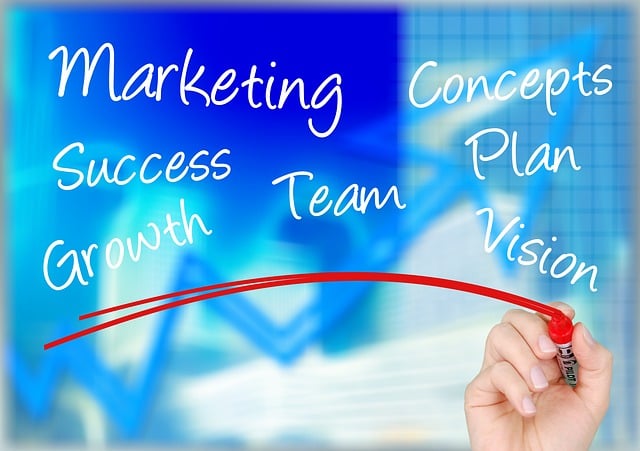AI regulatory monitoring transforms mobile home management by automating document processing, ensuring strict adherence to regulations, and saving time/resources. This technology identifies non-compliance issues promptly, allowing operators to adapt and streamline processes, thus fostering a safer, more compliant living environment for residents. Implementing AI solutions involves assessing workflows, choosing suitable tools, conducting pilot projects, training staff, and staying updated on trends for optimal compliance and operational efficiency.
In the evolving digital landscape, Artificial Intelligence (AI) is transforming sectors across industries. This article explores the pivotal role of AI in revolutionizing the document processing for mobile home parks, with a focus on enhanced regulatory compliance. We delve into how AI’s capabilities extend beyond manual tasks, enabling automated regulatory monitoring to ensure adherence to complex laws and standards. By implementing these intelligent solutions, parks can streamline operations, reduce errors, and foster a more efficient and compliant environment.
- Understanding AI's Role in Streamlining Mobile Home Document Processing
- The Benefits of Automated Regulatory Monitoring for Compliance
- Implementing AI Solutions: A Step-by-Step Guide for Mobile Home Parks
Understanding AI's Role in Streamlining Mobile Home Document Processing

In today’s digital era, Artificial Intelligence (AI) is transforming industries across the board, and the mobile home sector is no exception. By integrating AI into document processing, mobile home parks can streamline regulatory compliance monitoring. AI algorithms can efficiently analyze and categorize documents, ensuring that all necessary paperwork is up-to-date and in order, which is crucial for maintaining adherence to local, state, and federal regulations.
This automated approach significantly reduces the time and resources typically required for manual document processing. With AI, mobile home parks can quickly identify and rectify any non-compliance issues, thereby avoiding potential penalties and legal troubles. Moreover, AI regulatory monitoring allows for proactive management, enabling parks to stay ahead of changing rules and guidelines, ensuring a safer and more compliant living environment for residents.
The Benefits of Automated Regulatory Monitoring for Compliance

Automated regulatory monitoring using AI offers significant advantages for maintaining compliance in the mobile home industry. By leveraging machine learning algorithms, businesses can efficiently track and interpret complex regulatory changes, ensuring that their operations remain up-to-date with legal requirements. This technology enables continuous compliance, eliminating the risk of human error or oversight, which is crucial given the intricate nature of regulations surrounding mobile homes.
Furthermore, AI-driven monitoring systems provide real-time alerts for upcoming changes or updates, allowing operators to adapt promptly. This proactive approach streamlines the regulatory process, reduces administrative burdens, and frees up resources that can be redirected towards enhancing customer experiences and business growth. As regulations continue to evolve, automated monitoring becomes an indispensable tool for keeping mobile home businesses compliant and competitive.
Implementing AI Solutions: A Step-by-Step Guide for Mobile Home Parks

Implementing AI solutions in mobile home parks can streamline document processing and enhance regulatory compliance, but where do you begin? Here’s a step-by-step guide for parks to embark on this journey:
1. Assess Current Processes: Start by understanding your current document workflow. Identify pain points, manual tasks, and areas where errors are common. This analysis will help pinpoint the most significant benefits AI can bring.
2. Define Specific Use Cases: Determine which documents require automated processing. Examples include tenant applications, lease agreements, maintenance requests, or inspection reports. Prioritize these use cases based on their volume and impact on compliance.
3. Choose the Right AI Tools: Explore AI document processing platforms that offer features like form filling, data extraction, and categorization. Some solutions even integrate with existing management software. Look for tools that align with your specific needs and budget.
4. Pilot Project: Begin by implementing AI in a small, controlled manner. A pilot project allows you to test the technology on a limited scale, gather feedback from staff, and make necessary adjustments before full-scale adoption.
5. Train Your Team: Ensure your team understands how to use the new AI system effectively. Provide training sessions or resources to familiarize them with the software’s capabilities and limitations. Their buy-in is crucial for successful integration.
6. Monitor and Evaluate: Regularly assess the performance of the AI system during and after implementation. Track key metrics such as processing speed, accuracy rates, and user satisfaction. This step ensures the solution remains efficient and effective over time.
7. Stay Updated on AI Trends: The field of AI is rapidly evolving. Stay informed about advancements in document processing technology to take advantage of new features or improvements that can further enhance your park’s operations and compliance.
AI has the potential to revolutionize document processing in the mobile home industry through automated regulatory monitoring. By understanding AI’s role, leveraging its benefits, and following a structured implementation guide, mobile home parks can streamline compliance processes, save time, and reduce errors. This tech-driven approach ensures that all documentation remains up-to-date and accurate, allowing park managers to focus on enhancing resident experiences while adhering to regulatory requirements. With AI mobile home document processing, the future of compliance looks efficient and intelligent.
